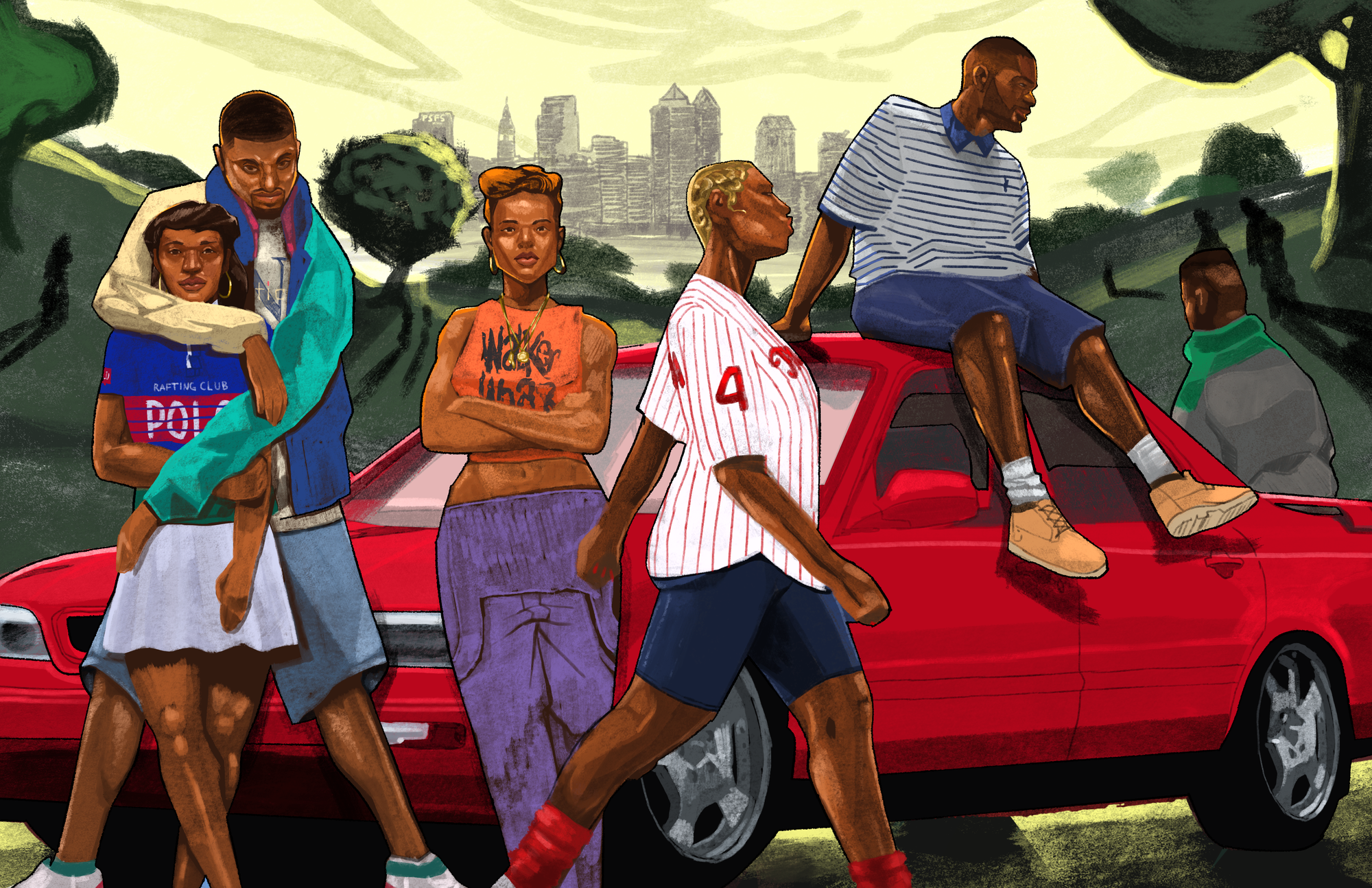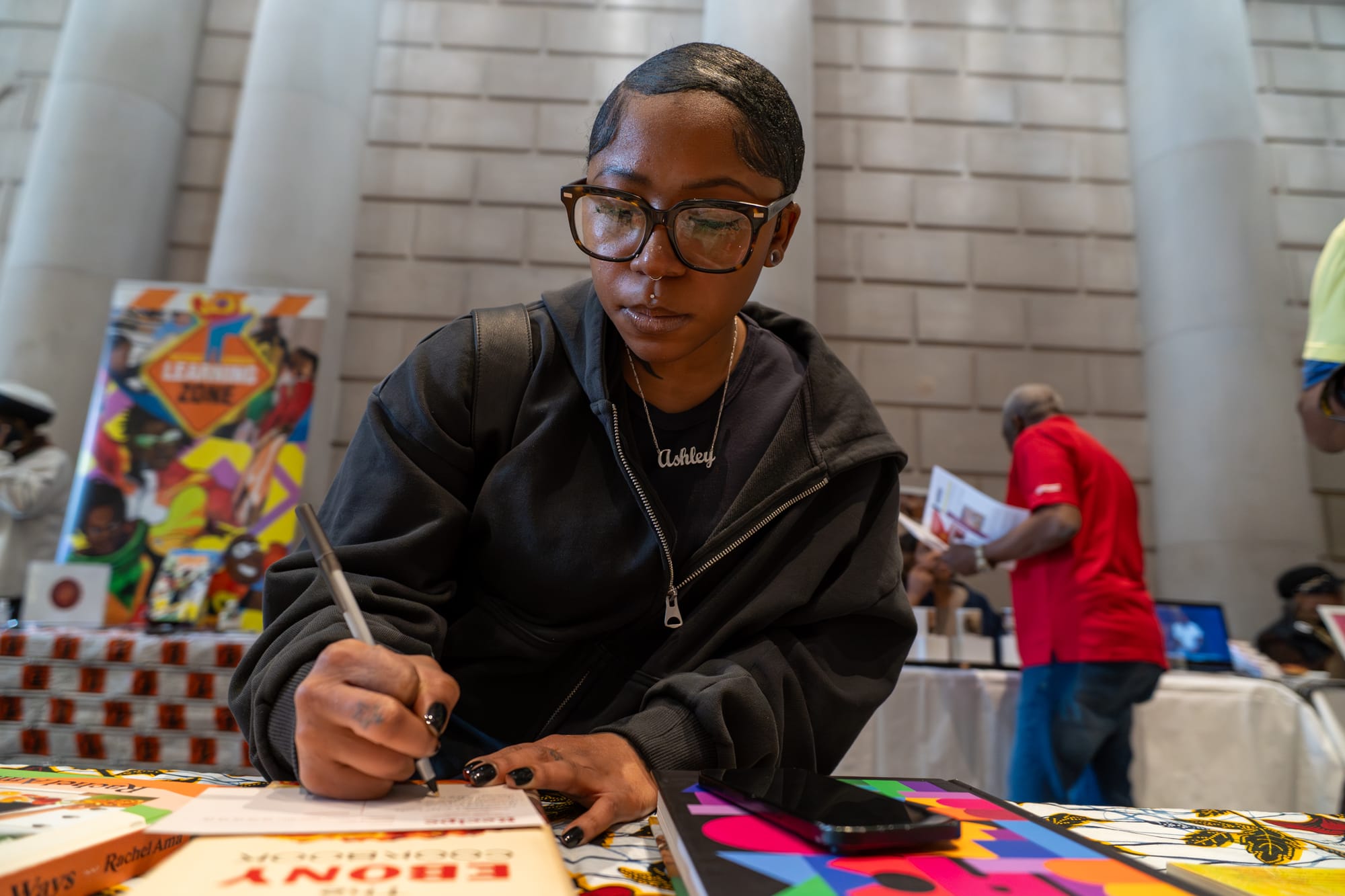OPINION: Black Voters and the Moral High Ground: Navigating Political Divides Post-Election
As Americans, we expect to hear it during every major presidential election. We heard it in 2008, 2012, 2016, 2020, and now in 2024. The validation and confirmation that, again, Black Americans are continuously on the right side of history. But at what cost?
As Americans, we expect to hear it during every major presidential election. We heard it in 2008, 2012, 2016, 2020, and now in 2024. The validation and confirmation that, again, Black Americans are continuously on the right side of history. But at what cost?
Sixteen years ago — yes, it was 16 years ago — since Barack Obama was first elected president, and the statistics were everywhere. More Black people came out to vote than ever before, more youth voters under the age of 29 came out to vote than ever before, more Black women came out to vote than ever before, and as a unit, we Black Americans wore that as a badge of honor. The people who were once considered three-fifths of a person, and who did not get the right to vote until 1870 for Black men, 1920 for Black women, and 1965 for everyone to be able to vote safely, can be single-handedly acknowledged as the demographic who believed most in electing the first Black president of the United States.
Since then, this narrative that Black voters are, and will always be, on the right side of history comes into play. When we reflect upon the Reconstruction era, a time when the United States government had the most Black political representation it has ever seen, we see that voting was met with an "I absolutely am" rather than an "I guess I will."
It could even be said that the Democratic Party, as we know it, understands the loyalty of Black Americans not to just be on the right side of history, but to always champion human and civil rights. The Democrats know us to be the sole group of Americans who are notorious advocates for creating a society that recognizes all humans as deserving of a space to live, grow, and thrive. We are the demographic who lives and breathes the quote "None of us are free until all of us are free." But in 2024, we now look around and ask, "Have we been exploited, and if the answer is yes, then where do we go from here?"
Cut to Philadelphia, a city that is 49% Black and whose local legislation reflects that. It’s necessary to recognize that during the April 2024 primary, only 18% of eligible voters came out to vote in Philly. As for local elections held every year or every two years, the numbers can be even lower. So, what does it mean that a city with an overwhelming amount of Black people, Black leadership, and its first Black woman mayor continues to decline? These are the questions that cropped up during Kamala Harris’ 107-day campaign to become the 47th president of the United States.
During those 107 days, there was a lot of discussion about — or dare I even say, finger-pointing toward — Black men and how their misogyny, disenfranchisement, indulgence of the patriarchy, and perpetuation of toxic masculinity would be a potential blind spot for the Kamala Harris campaign. I even weighed in on it via TikTok and ended up having my video played on MSNBC’s "The Beat with Ari Melber."
There was an overwhelming cry from women that, yes, this would be the wedge that truly divides us as a people; there was confirmation from men that this would be the last straw; and then there was a small hum of men who said, "Please don’t do us like that." The end results proved that both of the most extreme cases were wrong because Black men did what they do, and they showed up and out to vote for the first potential Black woman president of the United States.
What the election didn’t know is that it was peeling back the curtain upon the number of Black men who are exhausted by the United States’ two-party political system as a whole. From the comments on my video and the subsequent stitches and duets people created, I learned that Black men just flat-out did not want to vote for either candidate. When questioned about this decision, their responses were, "Neither party has done anything for me, ever." Which, as American citizens, we can’t deny as the truth. It’s been quite a while, if ever since Black men felt like they could trust or even respect the United States government.
Between Black men's feelings of abandonment and Black women's feelings of pressure, everyone is exhausted. Black men are exhausted from being ignored and then begged to show up and support. Black women are exhausted from being vessels of change and then rarely listened to about how things should move forward. The forced theme of resilience that has come to be known as part of Black Americans’ cultural identity is wearing both sides thin and causing deep-seated frustration with each other.
Both sides recognize that there are needs for each group that do not overlap, specifically regarding the impacts of living within a patriarchal society, dismantling pre-structured social systems, and the necessity of achieving upward mobility. Unfortunately, there has been little headway made on what it looks like to unite against the two-party system the United States is considerably bent on maintaining, but that doesn’t mean anybody has given up.
With only a few weeks passed since the election that shook the entire world, it’s worth noting the small rumblings. Black women across the United States have decided they are done, going as far as posting videos, memes, tweets, stories, and more saying, "Call us back in 2029 because we are tired." Black men across the United States are saying, "We gave it our best shot and it wasn’t enough. Now leave us alone."
You have to wonder, could the mending of the Black community come from being deflated and defeated? One would hope not because those attitudes and emotions don’t always necessarily invoke a thirst for change. At their worst, they can actually summon an air of complacency. But if history tells us anything, rage has the power to become an age-old unifier, so if that’s where we are headed, then what they say is true: "It is what it is, until it isn’t."




